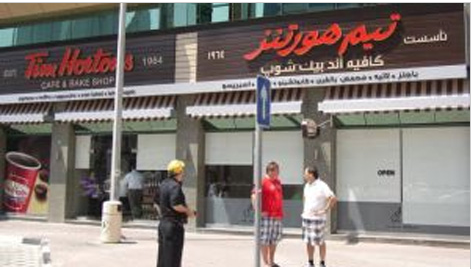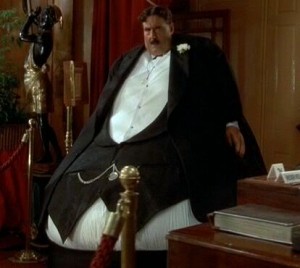
Ethan’s post about Tim Hortons venturing into the Arab Gulf caught my eye in two ways; Tim Hortons being the subject, and the photo he used that had Tim Hortons written in Arabic, which spelled out “Teem Hoortons Coffee and Beek Shoop” (Bake Shop). Besides from the chuckles from seeing the sign, this post kept on making me think about Porter’s Five forces and how “Teem Hoortons” must have used the forces their decision to start business in the Arab Gulf. I totally agree with Ethan in the sense that Tim Hortons should consider their points of difference and assess how substantial their marginal profits will be, however, I don’t think there is too much competition in the Middle East for North American coffee chains. That being said, in reference to Porter’s forces, threat of substitutes might be a tricky one due to existing coffee chains in the Arab Gulf, and the different traditions formed around coffee. Coffee plays an enormous role in Arab culture and the idea of foreigners venturing into a cultural aspect has the potential to be unsuccessful. Nonetheless, if I ever convince my parents to take me to Dubai, I can assure them that they won’t have to miss their daily dose of Timmy’s, which they still don’t confess to having…
Ethan’s Blog: https://blogs.ubc.ca/bball123/



